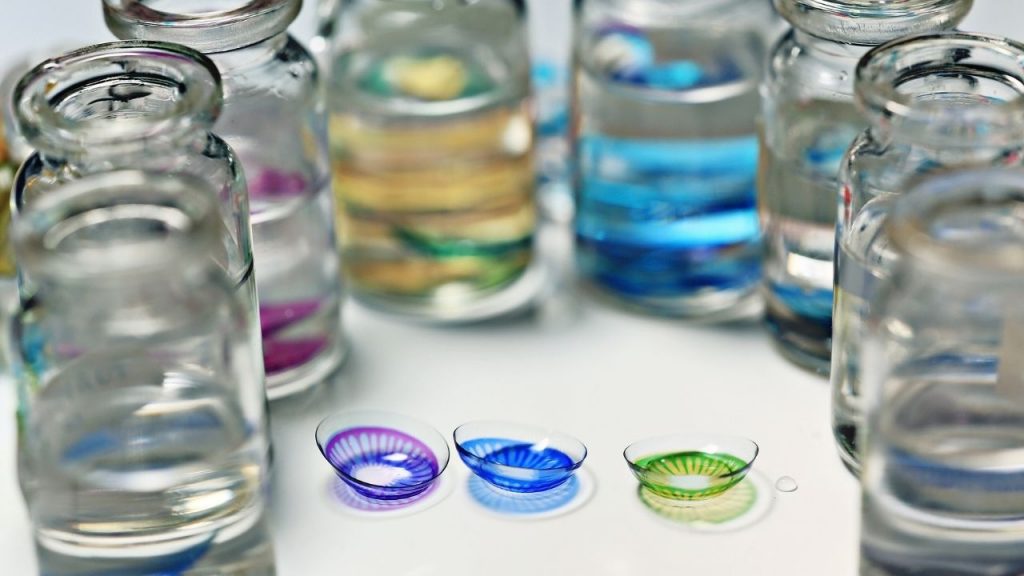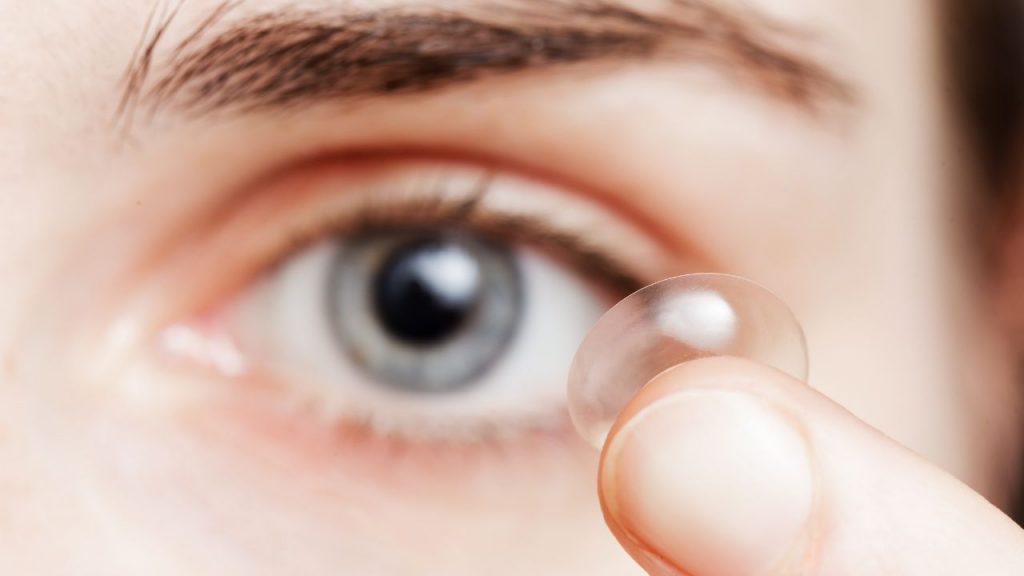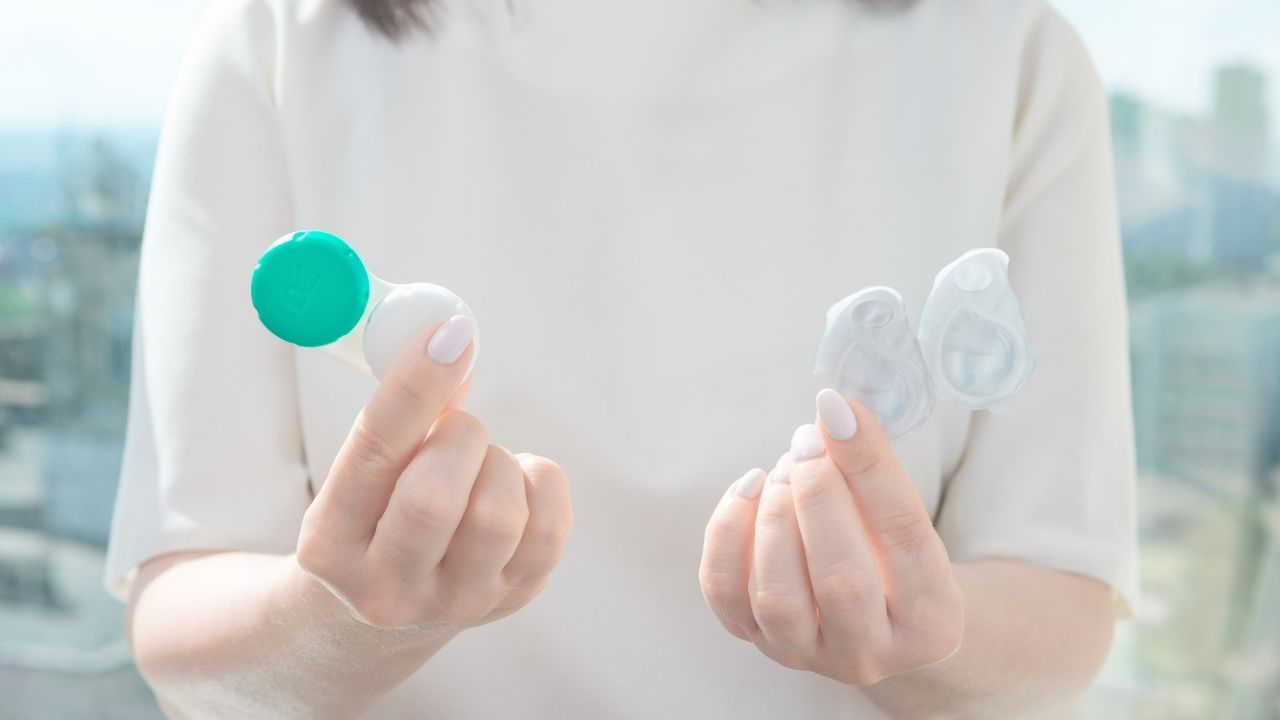Digital screens blast our eyes with harmful lights and rays as we scroll endlessly on Instagram, and that’s why -now more than ever- vision problems are widespread among young people; Fortunately, you can put your glasses on and voilà! Your 20/20 vision is back.
But most people don’t like wearing glasses, and their reasons are valid:
- You can’t lay on your side wearing them.
- They might be a bit uncomfortable on your ears and nose bridge.
- You might simply hate how you look with them on.
That’s why contacts are great; they correct our eyesight without the need for glasses, they are always on your eyes, and if you use them correctly, you’ll never notice them at all. But choosing the right contact lenses is extremely important, and it can be tricky as there are many options out there. That’s why we made the ultimate guide for you to help you with the process!
To choose the right contacts for you, you need to check with your optometrist and ask if you can use a specific type. Your eyes are extremely sensitive; choosing the wrong contacts or misusing them can result in severe problems and permanent damage to your eyes.
Different types of contact lenses:

Soft disposable lenses:
Pretty self-explanatory, Soft disposable lenses are the most common type in use today; they come in many varieties and differ in how long you can use them.
- Daily disposable: They are the easiest type to use; step one: wear them once, step two: throw them away! It’s as simple as that.
- Two weeks lenses: can last you for two weeks.
- Monthly disposable lenses are the most common type of disposable contacts.
- Some contacts can last for a whole year, and remember that All disposable lenses need a rigorous cleaning routine.
Daily or monthly disposable lenses?
As we mentioned before, both types are widespread, and each one has its pros and cons:
Daily lenses are great for occasional use; they don’t require maintenance because you’re going to replace them the next day with a new package.
Replacing your contacts daily is less irritating to the eyes because this doesn’t allow the build-up of allergens and bacteria.
They are ideal for kids and people who have busy schedules as they don’t require contact solutions and constant care. But on the other hand, daily lenses are a bit pricey and relatively new, so you might not find the right fit for you because they don’t cover every prescription.
Monthly disposable lenses are a great choice, but they might be more uncomfortable because of the build-up of proteins and allergens as time passes by.
You have to keep in mind that these lenses need constant care, they might be cheaper, but you have to invest in buying contact solutions which will add expenses to your bill over time.
Extended wear lenses:
As we all know, sleeping with your contacts is a big no-no, but extended wear lenses are designed and meant to be worn overnight, and they can last up to a month.
While continuous wear is not an issue with these lenses, you must consult your doctor first and make sure to ask whether you can sleep with them or not.
gas-permeable lenses:
Unlike soft lenses, gas-permeable lenses are rigid, but they are made of a unique material that allows oxygen to pass through the lens itself to your eye. They are comfortable and durable, which means they combine the best of two different types of contacts.
Custom lenses:
These are called cosmetic lenses or special-effect lenses as they are made to suit particular conditions like disguising a disfigured eye, so vision correction isn’t the top priority here.
How to choose suitable contact lenses?

Taking everything into consideration, choosing the right contacts can be boiled down to these simple questions:
- What are your priorities, and why do you need contacts in the first place?
- How often are you going to wear them?
- And finally, do you have enough time and patience to deal with all the hassle of keeping your contacts clean and safe to use?
Now let us help with the answer:
If you’re looking for contacts to sharpen your vision, then gas permeable contacts are the ones to choose since they have a hard and polished surface that will help you restore your vision Immediately.
Whereas if you have astigmatism, you can choose between gas permeable contacts or special-soft contacts specially designed to solve this problem.
Another point worth noting here is that hard contact lenses are not comfortable to wear, especially at first -shocking, I know- and it will take several weeks before getting used to wearing them without any discomfort.
Now let’s imagine a scenario where you already have glasses, and you’re planning on wearing contacts on special occasions. In that case, we recommend getting soft lenses because they are immediately comfortable and great for occasional use; so if comfort is a primary consideration for you, then soft lenses are a no-brainer.
And to all my fellow lazy people out there, let me tell you one thing: daily disposable lenses are everything. They do what they are supposed to do without overwhelming you with the tedious cleaning and sanitizing process; just wear them today and throw them tomorrow; it doesn’t get easier than that.
In conclusion, consult your doctor before choosing any contacts. Still, in general, gas-permeable lenses are the best for vision correction because they have a rigid structure instead of the soft one of other lenses.
Daily disposable contacts are the best; they protect your eyes from the risk of infections because you have to replace them every day; that’s why they are the easiest to use. They cost a little more, but if you don’t have the capacity or the time to maintain your lenses, daily disposable lenses are for you!
Monthly disposable contacts come in various options, and they might be the only choice for your specific condition. You can wear them for an extended period but remember to keep them clean.
If you want to change your eye color, then go with custom lenses, but even if you don’t have vision problems, that doesn’t mean you can buy cosmetic lenses without consulting your doctor!
That’s all! Always take the advice of your contact lens practitioner, attend regular check-ups every year or so, and remember that eye infection risk goes up dramatically when you sleep in with your lenses. Enjoy your lenses and be careful. Also, check out our other articles on this topic if you want to go more in-depth into the vast world of contact lenses!
Read More: Which Contacts Can You Sleep In?
Don’t forget to visit MetroBrazil Store fore high-quality contact lenses
